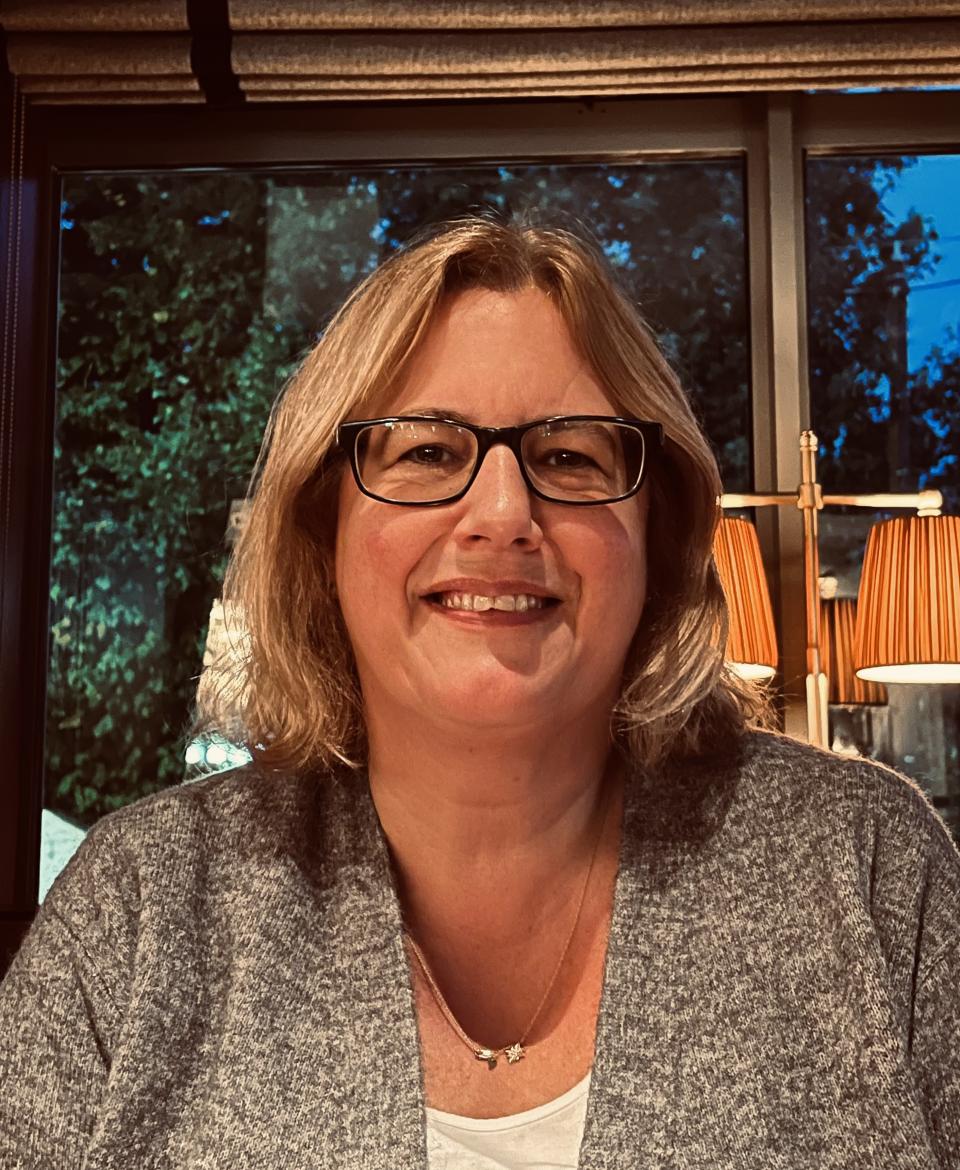
In May 2023, Lynne Murphy was called for her first breast check screening aged 52. “I got the letter and thought nothing of it. I live in Wicklow so made my way down to the satellite clinic in Arklow, had the mammogram and ten days letter, I got a recall letter to go into St. Vincent’s. I was a little concerned then, but was telling myself not to worry.”
When Lynne attended St. Vincent’s she was straight into more tests. “I had a further mammogram, an ultrasound and a biopsy, they also did something called a puncture biopsy. Following these tests, I remember one doctor asking me if I had somebody with me or if I’d travelled alone, and I think it was that moment when I realised they had found something.”
Following her screening and further tests, Lynne was informed doctors had found a 3.5cm tumour on her breast, a Stage 2, Grade 3 tumour. “I couldn’t believe how big the tumour was and yet, I noticed and felt nothing. It was very deep in the breast tissue. Once doctors pointed out to me where it was, I could feel it, but I never would have found it on my own.”
Just three weeks prior to her diagnosis, Lynne had begun hormone replacement therapy (HRT) to relieve menopausal symptoms. “I was sitting in my GP’s office listening to her advising me on the very minimal increased risk of HRT for breast cancer, completely unaware that I already had breast cancer – I didn’t even get to use a full pump of the HRT as I had to come off it.”
In coming to terms with her diagnosis, Lynne has described being given the news like “crossing over into a different universe”. “It’s so hard to explain, after you get your diagnosis, it’s like a wall goes up between that point onward and everything that’s happened before. There’s your life before your diagnosis and your life afterwards. The first couple of weeks were absolutely torturous and I think that’s because of the waiting.”
Initially, Lynne thought she would be able to continue working and that she would only need a short time off. “I said I needed a week off at the start. I tried to go back and was in and out for two weeks, but my mind wasn’t in it, I couldn’t concentrate on anything. My GP was brilliant, she offered great support and was able to help me see that something had to give, and that something was work and I needed to step away.”
"Once you get your treatment plan and can start to see the next steps, while still being very difficult, it starts to become more manageable.
“Once you get your treatment plan and can start to see the next steps, while still being very difficult, it starts to become more manageable. You know what’s in store and what lies ahead. In terms of my treatment, I was very lucky after my initial diagnosis – I was estrogen receptive positive, HER2 negative and my lymph nodes were clear, meaning the cancer hadn’t spread.”
At the end of May, Lynne underwent a lumpectomy to remove the tumour and reconstructive surgery. After recovery, she began her radiotherapy two months later. “I was very fortunate not to have to go through chemotherapy and I know that my treatment experience would have been very different if that had been the case. Radiotherapy has been difficult as well. The medical team are great in terms of helping you with some of the skin burning and tenderness that comes from the treatment with your skin. I am very fatigued – I’ve tried to get out and walk and keep myself active as much as I can, but by around 7pm in the evening, I’m flattened. I have the support of my family to help me through it all.”
"In hindsight, when I got my initial diagnosis, I felt like my world fell apart, but this wasn’t the case. You can get through it and not lose yourself in it.”
As a usually private person, Lynne has found the attention and focus on her body going through her diagnosis and treatment challenging. “It’s an odd thing to come to terms with, I think. A lot of people know about breast cancer, but living it and going through it is different. I’d probably be a more private person, but you have to adjust and get used to this attention on a private part of your body.”
In coping with her diagnosis, and its impact on her family, Lynne has made use of supports provided by local resources such as Greystones Cancer Support and Purple House in Bray. “There are supports out there and I’d encourage anybody, whether you’re the cancer patient yourself, or your family members, to make use of them. I definitely found counselling and talking to somebody about what I’m going through helpful.”
“I’m sharing my story because I want people to know that once you come through the fog of your diagnosis, get your treatment plan in place, and obviously this depends on your treatment and how you respond, your life doesn’t have to change all that much. In hindsight, when I got my initial diagnosis, I felt like my world fell apart, but this wasn’t the case. You can get through it and not lose yourself in it.”
